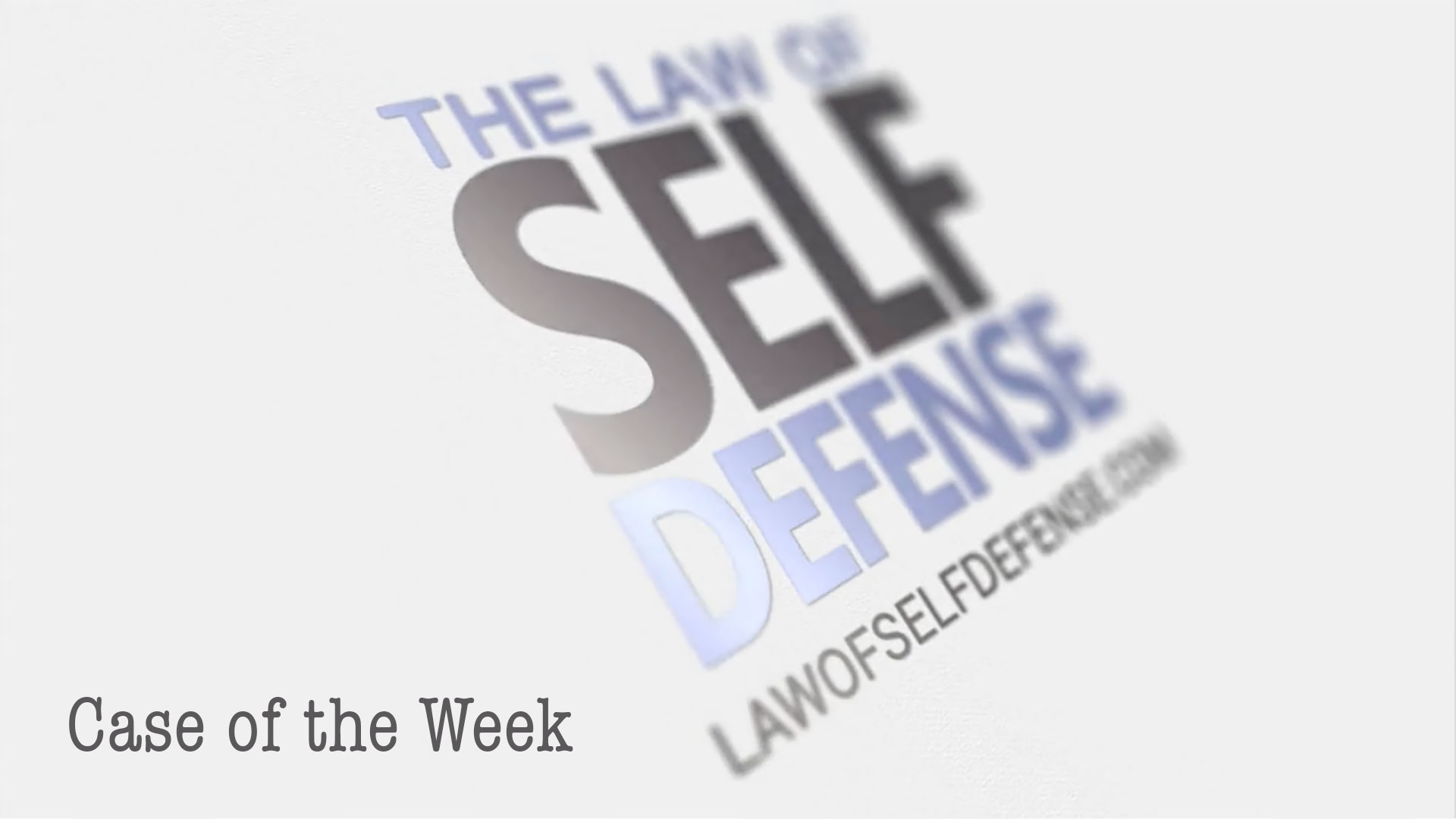
Posted on August 22, 2018
Case Of The Week with Andrew Branca-August 22nd, 2018
A Cautionary Tale: Don’t Assume Expertise of Others
This week’s case is not so much a case as it is a cautionary tale.
I warn students in every class that certain job titles, like lawyer, cop, or firearms instructor, DO NOT guarantee a person in those fields knows a darned thing about use-of-force law.
We lawyers, for example, are not taught the subject to any real depth in law school—just a few minutes in first-year criminal law. And any lawyer who is not a criminal defense attorney has no professional need to understand it.
Even criminal defense lawyers who have a lot of experience arguing self-defense cases will mostly have experience arguing “bad guy” cases rather than “good guy” cases. These cases look very different. Absent exceptional circumstances most criminal defense lawyers will have only a handful of “good guy” self-defense cases in a multi-decade career.
By the way, this caution applies no just to lawyers generally, but even to prosecutors, criminal defense attorneys, and criminal trial judges. There was an appellate court decision out of Alaska just a year ago, Rossiter v. Alaska, where a murder conviction was overturned specifically because the appellate court found that none of the purported legal experts at trial—not the prosecutor, not the client’s defense counsel, not the trial judge—understood Alaska use-of-force law.
Cops, as another example, are actually taught more use-of-force law in the police academy than most lawyers are taught in law school. But this doesn’t guarantee expertise either. Much of what they’re taught is not designed to protect the officer from prosecution. Rather, it’s intended to protect his department from being sued for the officer’s actions.
Remember, it’s the department that has the deep pockets, and while the officer has qualified immunity for acts in the performance of his duties, his department is always potentially liable to Federal §1983 suits.
Also, cops swim in different use-of-force waters than us non-cops. We are, for example, never permitted to start a fight. Cops, on the other hand, are routinely called upon to “lay hands” on a person first, such as when making an arrest.
Firearms instructors are also too often wrong about use-of-force law. It’s not because they can’t be well informed—they certain can if they make a diligent effort, as the graduates of our own Law of Self Defense Instructor Program can attest. It’s just that most of them have not had the means or opportunity to learn this stuff at a deep level. As a result, too many instructors end up—in good faith—repeating mistaken information that they themselves were taught by their own instructors, who in turn received this misinformation from prior instructors, and so forth.
Again, a person in any of these groups might have a robust knowledge of self-defense law, if they’ve made a diligent effort to educate themselves rather than simply re-tell nonsense they’ve previously been taught themselves, but you must not assume that they know, based on their job title.
There’s an excellent example of this, out of Michigan, in a news article about a defensive shooting. The journalist got extensive quotes from an actual Benzie County prosecutor named Sara Swanson. In part, Attorney Swanson is quoted as saying:
“Michigan does not have a ‘Stand Your Ground’ law like, say Florida has …”
In fact Michigan adopted a “Stand-Your-Ground” law almost identical to Florida’s in 2006, only a year after Florida’s “Stand-Your-Ground” law was passed in 2005. You’d think a Michigan prosecutor in 2018 would know the state had a “Stand-Your-Ground” statute for the past 12 years, but apparently you’d be wrong.
Now, I don’t think much of journalists, especially when they cover shooting events, so it’s possible the journalist was wearing her “opposite cloak” that day and the prosecutor said the reverse of what was quoted. But I’ve seen exactly this kind of ignorance of use-of-force law by legal experts who ought to know better too many times to believe this simply couldn’t have happened.
Educate yourselves! Ignorance of the law is no excuse. Assume that the so-called “legal experts” around you actually know use-of-force law at your own risk.
As we say at Law of Self Defense: You carry a gun so you’re hard to kill. Know the law so you’re hard to convict.
The good news is that we offer two excellent and free ways to educate yourself on the actual law of self-defense in your state.
One is to catch our free weekly “Law of Self Defense Show.”
The other is to follow our self-defense law blog posts on our Patreon page. Each blog post is free for a week or so, after which it becomes restricted to our paying patrons.
You just need to learn what those elements actually are in your relevant jurisdiction. And you can take a solid first step in that direction with the “Law of Self Defense Show” and the Law of Self Defense Patreon page, without having to pay a penny.
–Andrew
Attorney Andrew F. Branca
Law of Self Defense LLC
Remember folks, if you find yourself in criminal court and fighting against life in prison, ignorance of the law will be no excuse, and telling the judge and jury, “But my [firearms instructor / cop neighbor / real estate lawyer friend] told me it was lawful!” will carry no weight if what they told you is wrong. You owe it to yourself and your family to learn this stuff yourself. And the good news is that it’s really not very complicated. There are only five elements of a claim of self-defense, just like there’s only four rules of gun safety.